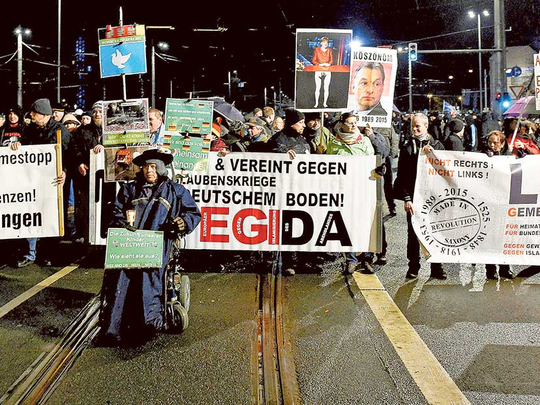
Copenhagen
It’s not often you hear of a Scandinavian government being accused of violating human rights, inciting xenophobia and placing the lives of children at risk. But that’s exactly what’s happening in Denmark.
The UN’s refugee agency says a bill due to be debated in the Danish parliament on Wednesday “could fuel fear, xenophobia and similar restrictions that would reduce — rather than expand — the asylum space globally and put refugees in need at life-threatening risks.”
The UNHCR has singled out Denmark’s plan to keep refugee parents separated from their children for as long as three years. The minority government says it has no choice but to enforce stricter policies in order to defend its public finances. The administration has already backtracked on a pledge to cut taxes in the first half of the year due to the mounting cost of absorbing refugees.
Wednesday’s parliamentary debate is to be the first of at least three in which lawmakers will discuss the merits of the proposed piece of legislation before a final vote. The current law can keep refugee families apart for a maximum of one year.
“It’s crazy talk,” says Jonas Keiding Lindholm, secretary general of Save the Children in Denmark. “Denmark has an obligation to process family reunification applications in a positive, humane and speedy fashion. But the government wants to do the very opposite.” The country needs to “keep in mind” that it signed the 1951 UN Refugee Convention, he said.
Denmark’s minority Liberal government has been swift to tighten immigration policies since winning June elections. Prime Minister Lars Loekke Rasmussen can’t afford to back down for fear of losing the support of the anti-immigration Danish People’s Party, which enjoys the backing of about one-fifth of the electorate, making it the biggest in the ruling bloc.
But the balancing act of Danish multi-party politics is making life hard for Rasmussen. Another support party, the Liberal Alliance, has threatened to withdraw its backing if tax cuts aren’t delivered in the spring.
Rasmussen’s foreign policy has also soured relations with Sweden, which has accused the Danes of shirking their responsibility toward those fleeing crisis in the Middle East. Denmark’s subsequent decision to impose controls on the German border drew noises of concern from the Foreign Ministry in Berlin over the future of the passport-free Schengen zone.
But “if the European Union can’t protect its outer borders,” national governments will need to pick up the pieces, Rasmussen said on January 4.
Denmark’s treatment of those asylum seekers who make it through the country’s tough checks have also drawn criticism.
The Danish Red Cross has slammed the government for putting refugees in tents amid subzero temperatures, when they could comfortably be lodged in more permanent quarters that the organisation says are available. A proposal to confiscate refugees’ valuables to help cover the cost of their stay was met with international outrage, prompting the government to soften its plan somewhat.
It’s not just asylum seekers that are having a hard time making it into Denmark.
Shalik Ram Bhattarai, a Nepalese masters student in economics at the University of Southern Denmark, was thrown out of the country over the weekend. The reason: he worked too many hours as a chef and translator. His wife and their three-year-old son, who was born in Denmark, will also be forced to leave the country unless Shalik wins a February 7 appeal.
“I paid the tuition fees myself and I thought it was all over after paying a fine,” Bhattarai said. “I am worried and angry, but I still want to come back to Denmark, it’s my second home.”
Such examples, as well as the public relations fallout of Denmark’s immigration policy, aren’t likely to help the country attract skilled foreign workers. Given that the Confederation of Danish Industry says “foreigners are vital to Danish growth,” that’s bad news for the Danes.












